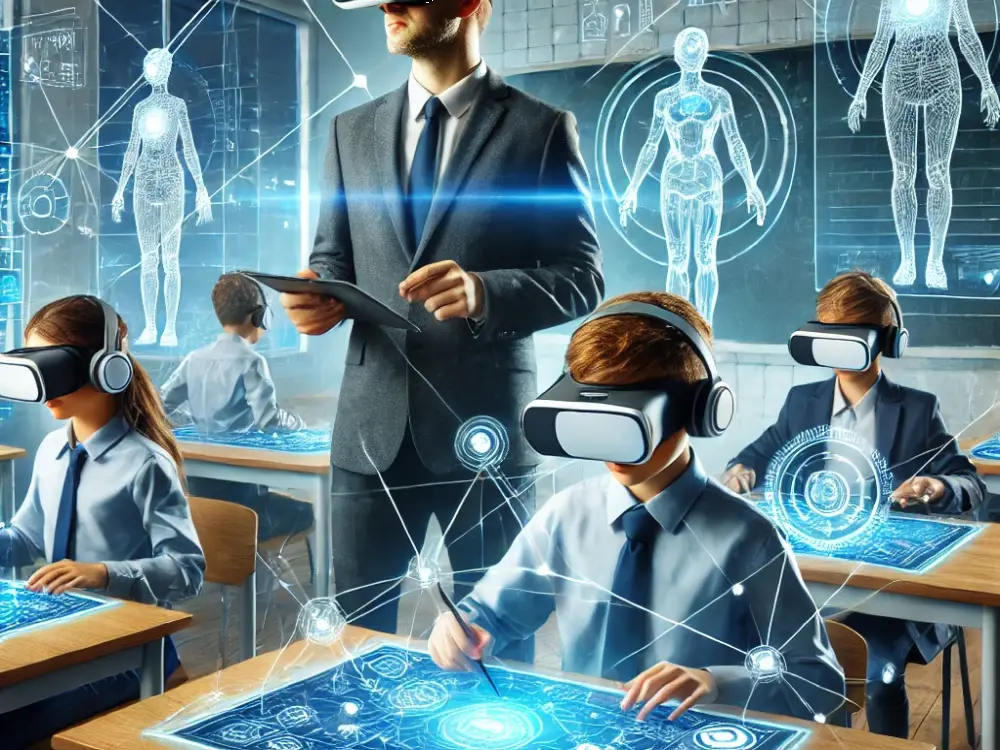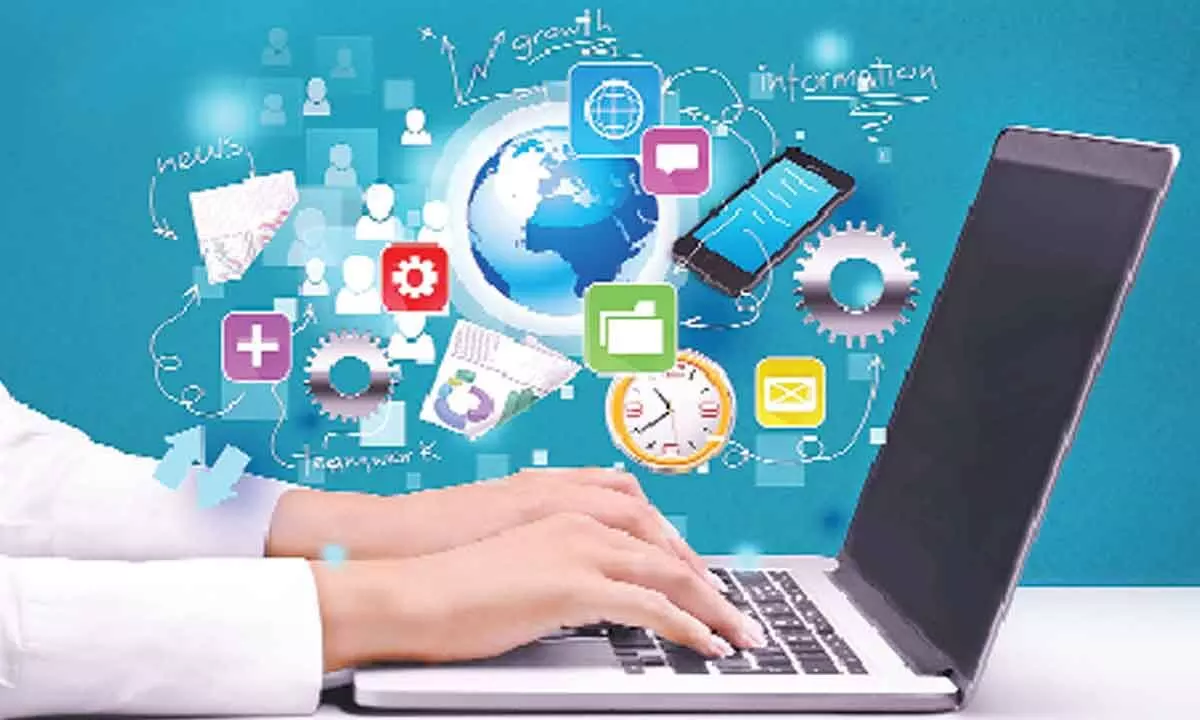Make an application for Grants That Make a Distinction in Your Neighborhood or Business
The Role of Innovation Education And Learning in Shaping Tomorrow's Workforce: Insights for Educators
As the landscape of employment proceeds to develop under the influence of technical improvements, the duty of technology education comes to be increasingly critical in preparing pupils for future occupations. Educators are entrusted with equipping learners not only with technical effectiveness however additionally with vital soft skills such as vital reasoning and partnership. By examining cutting-edge curricular strategies and cultivating partnerships with industry leaders, we can better comprehend exactly how to efficiently cultivate a labor force that fulfills the needs of an electronic economy. What techniques can instructors utilize to link the space between education and industry assumptions?

Value of Modern Technology Education
In a progressively electronic globe, the significance of modern technology education and learning can not be overstated. As sectors develop and incorporate advanced innovations, a well-rounded education and learning in innovation ends up being vital for both specialist and individual growth. Modern technology education and learning outfits individuals with the abilities required to navigate the complexities of contemporary work environments, fostering versatility in an atmosphere defined by rapid modification.
Furthermore, technology education and learning advertises important reasoning and problem-solving skills. Education. By engaging with different technical tools and platforms, learners improve their capability to evaluate details, draw links, and develop innovative solutions to real-world problems. This educational emphasis not just prepares students for particular careers however also grows an attitude that is crucial for lifelong discovering
In addition, modern technology education plays a crucial function in linking the electronic divide. By offering equitable access to technological sources and training, academic organizations empower all pupils, regardless of socioeconomic status, to join the electronic economy. Finally, as we relocate better into the 21st century, prioritizing modern technology education and learning is imperative for preparing an experienced workforce capable of growing in an increasingly interconnected and technically driven global landscape.
Trick Abilities for Future Workforce

Additionally, efficiency in digital proficiency is important; employees must navigate a variety of software devices and systems effectively. Partnership skills are also vital, as a lot of modern-day workplaces emphasize synergy throughout diverse, frequently remote, environments. Imagination and innovation will certainly be important in driving the advancement of new solutions and items in an affordable market.
Recognizing data analytics and cybersecurity concepts is increasingly vital, reflecting the growing value of data-driven decision-making and protecting sensitive details. A foundational understanding of synthetic knowledge and device knowing will equip future professionals to leverage these technologies properly.
Educators needs to therefore prioritize the combination of these abilities into their modern technology curricula, making certain pupils are well-equipped to meet the needs of a vibrant work market. By fostering these expertises, we prepare learners not simply for their initial work, yet for long-lasting occupations in an ever-evolving technological landscape.
Integrating Innovation in Curriculum
Integrating modern technology into the educational program is crucial for modern education and learning, with 85% of teachers identifying its relevance in improving trainee involvement and learning end results. As technology continues to develop, universities have to adapt to prepare trainees for a future where digital literacy is paramount. This assimilation entails not only making use of electronic devices yet likewise the consolidation of ingenious resources that foster critical thinking, creativity, and cooperation.
A well-structured innovation curriculum must straighten with academic requirements while dealing with the varied knowing requirements of trainees. This can consist of a mix of on-line platforms, interactive software, and multimedia resources that cater to different discovering designs. Furthermore, teachers have to get ample training to successfully execute these innovations, ensuring that they are geared up to help with a technically enriched understanding environment.
Furthermore, incorporating technology into the curriculum enables real-world applications, linking the space between academic expertise and functional abilities. By involving pupils with pertinent and immersive experiences, educators can cultivate a labor force that is not only technically proficient however ready and likewise versatile to satisfy the find this obstacles of tomorrow's work market. Stressing Full Article innovation in education is not merely a fad; it is a necessity for forming competent future experts.
Innovative Mentor Strategies
Welcoming innovative training methods is vital for promoting a efficient and interesting understanding setting in today's educational landscape. In innovation education and learning, teachers must use techniques that not only capture trainees' passion yet likewise furnish them with the skills required for future professions. One efficient technique is project-based learning, which urges trainees to participate in real-world problems, advertising critical reasoning and cooperation.
Furthermore, incorporating gamification can boost motivation and retention, making intricate concepts a lot more accessible and delightful. Education. Turned class, where trainees evaluate educational material at home and take part in hands-on activities throughout class, also prove advantageous by taking full advantage of class interaction and application of knowledge
Moreover, utilizing technology-enhanced discovering tools, such as simulations and virtual laboratories, permits students to experiment and check out in a risk-free setting, fostering innovation. Individualized discovering experiences, customized to private student needs and finding out styles, can even more boost engagement and accomplishment.
Ultimately, by incorporating varied and innovative mentor techniques, teachers can develop a dynamic understanding atmosphere that prepares trainees for the challenges of tomorrow's workforce, ensuring they are not only educated yet skilled and additionally adaptable.
Collaboration With Industry Partners
Teaming up with sector partners is essential for linking the space in between education and the workforce. Such partnerships offer pupils with practical insights and experiences that are vital for their professional development.
Sector partnerships can take several forms, consisting of teaching fellowships, mentorship programs, and guest talks. These efforts enable trainees to More hints use their understanding in real-world contexts, promoting a deeper understanding of sector criteria and expectations. These collaborations can lead to the development of customized programs that resolve specific workforce needs, improving the significance of modern technology education and learning.
In addition, industry companions can add sources, such as tools and financing, that boost instructional offerings. By promoting a culture of collaboration, instructors and market leaders can interact to cultivate an experienced workforce that is prepared to satisfy the obstacles of tomorrow. Inevitably, these collaborations are important for producing a seamless change from education to work, profiting both trainees and employers alike.
Verdict
To conclude, innovation education offers as a keystone for developing a skillful labor force capable of browsing the intricacies of an electronic economy. By highlighting critical abilities such as digital literacy, creative thinking, and data analytics, instructors can boost trainee readiness for diverse occupation chances. The combination of innovative teaching strategies and collaboration with market partners even more enhances the finding out experience, guaranteeing that students are not just outfitted with knowledge yet additionally prepared to satisfy the needs of an ever-evolving job market.
As the landscape of employment proceeds to develop under the influence of technological improvements, the role of innovation education and learning becomes significantly important in preparing trainees for future careers. As industries evolve and integrate innovative modern technologies, a versatile education and learning in innovation becomes necessary for both personal and specialist growth.Incorporating modern technology into the educational program is necessary for modern education and learning, with 85% of educators acknowledging its value in improving student interaction and discovering end results. In modern technology education and learning, educators should employ approaches that not only catch trainees' passion but additionally equip them with the abilities needed for future careers.In final thought, modern technology education serves as a cornerstone for developing a skillful labor force capable of navigating the intricacies of an electronic economic situation.